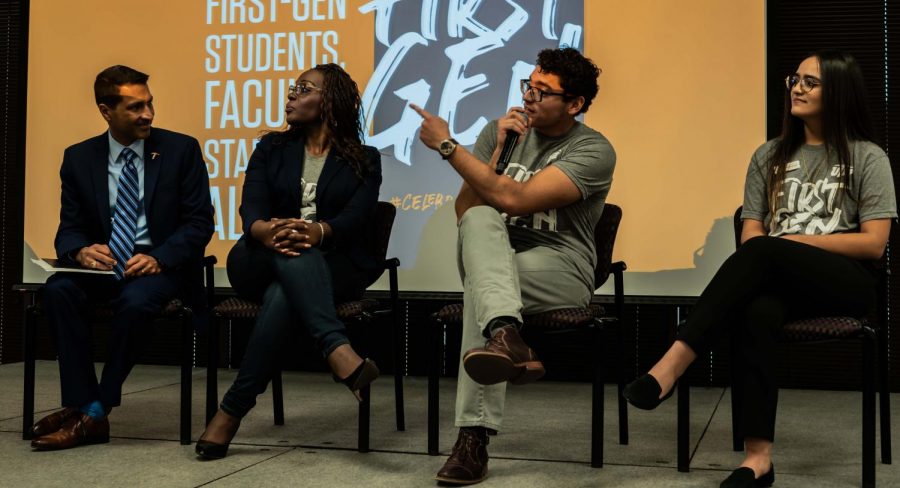For second or third-generation students, going to college may not seem like a big deal. The expectation has already been set and they may be simply continuing down a path that has been paved for them.
But for families that haven’t had access to higher education in the past, being the first to attend and graduate from a university is an enormous deal — one that comes with a very different set of expectations.
A first-generation college graduate is the first in their immediate or extended family to attend a university and graduate with a degree. The ability to navigate through the tertiary education system with no example to follow and little to no concept of how things work is no easy feat. It is an extraordinary accomplishment of which first-generation students have every reason to be proud.
“I think we forget how important it is,” said first-gen UTEP student Paola Barrientos. “We are the first generation. We’re starting anew and we’re the first line to inspire future generations to come.”
Education is a powerful tool; it allows individuals to grow their skillset and empowers them to make helpful contributions to society.
“To be educated is to be given the opportunity to be able to see the world differently,” said Shafik Dharamsi, dean of the College of Health Sciences at UTEP. “When the world was thought to be flat, people sailed with a conception that they would fall over the edge and so on, but once you realized it was in fact around, you can never go back to seeing the world as flat again.”
Dharamsi himself is a first-generation college student. Before immigrating to Canada from Tanzania at the age of 11, Dharamsi had received an education equivalent to that of a first-grade level.
“Somehow I made it through high school. At that time, the guidance counselor told me, ‘Well, you know, university is really not for you,’” Dharamsi said. “That’s the message that a lot of us who are first-generation students received.”
Despite being underestimated, Dharamsi went on to earn three bachelor’s degrees, a master’s degree and a Ph.D.
Right out the gate, first-gen students are already at a disadvantage that takes shape as a lack of knowledge on how to apply for financial aid or scholarships, how to engage in extracurricular activities and an overall lack of understanding of the methods and practices necessary to succeed in the classroom.
Luckily, there are resources available to help first-gen students thrive.
“What helped me was being able to have open conversation with my instructors, with different faculty and with the counselors when I needed help,” said Florina Barnett, first-gen UTEP alumna and the university’s director of human resources. “When I didn’t understand an assignment, there were resources available at the library that were extremely, extremely important to me.”
Barnett also stressed the importance of having a strong support system when going through college as a first-gen student.
“You have to let people in. Whether that means finding other first-generation students on campus, possibly in student life, you must have some type of support system,” Barnett said.
Attending college is a tremendous accomplishment in and of itself. Being the first person in your family to do so can make it even more meaningful.
Breaking the mold and setting greater expectations for the generations that succeed is a transcendent victory that will no doubt help shape a more progressive future.
Margaret Cataldi may be reached at [email protected].












